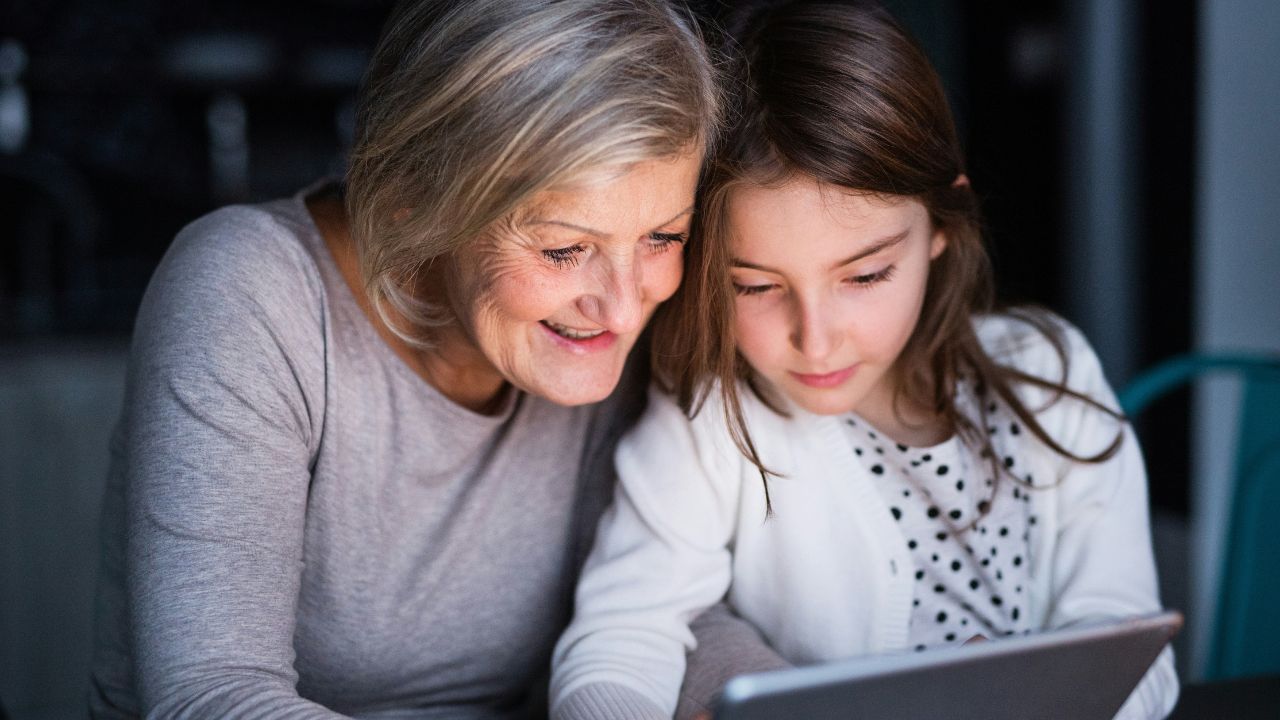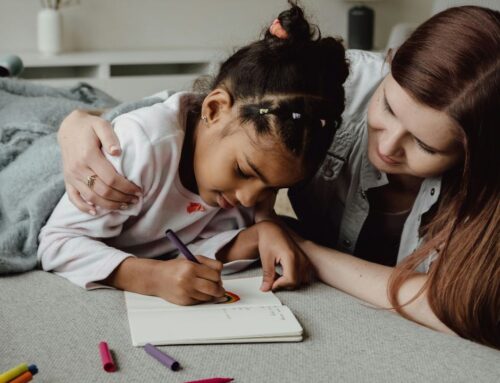At SelfDesign® Learning Community, learning consultants work closely with you and your child every step of the way. With one-on-one support throughout the learning journey, learners are set up to thrive!
Unlike traditional brick-and-mortar schools with large classrooms led by a single teacher, each family at SelfDesign gets matched by a dedicated learning consultant and a BC certified educator. They provide personalized guidance tailored to each learner’s needs. For younger learners, learning consultants primarily work with the parents or guardians to support the learner, and in older grades, the learner works directly with the learning consultant.
By collaborating with families, learning consultants can help children achieve their unique learning goals and pursue their passions and interests.
Keep reading to explore some of the differences between SelfDesign learning consultants and traditional teachers.
1. Personalized learning plans tailored to each child
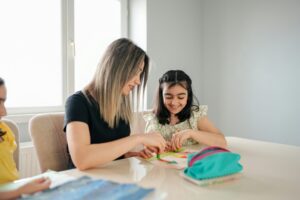 Instead of a cookie-cutter approach to learning where every child follows the same lessons, SelfDesign offers personalized learning plans that bring out the best in each learner based on their interests, strengths and challenges.
Instead of a cookie-cutter approach to learning where every child follows the same lessons, SelfDesign offers personalized learning plans that bring out the best in each learner based on their interests, strengths and challenges.
At the start of each learning year, the educator collaborates with the learner and you, the parent/guardian, to formulate a customized learning plan based on your child’s interests, skills, abilities and challenges.
The learning plan is a path for the learner to meet the BC Ministry of Education and Child Care’s curriculum while focusing on what interests them and what they feel passionate about. The plan outlines goals, suggests learning resources, and can even suggest additional extracurricular activities such as music lessons, sports, etc. Weekly communication between the educator and families ensures learners receive guidance when needed.
2. Long-term relationships foster deeper learning
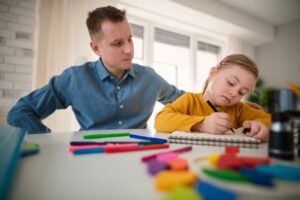 Unlike traditional teachers, who may only work with students for a single school year, SelfDesign learning consultants often stay with the same learner and family for multiple years. Some SelfDesign learners have been with their learning consultant from kindergarten to grade 12!
Unlike traditional teachers, who may only work with students for a single school year, SelfDesign learning consultants often stay with the same learner and family for multiple years. Some SelfDesign learners have been with their learning consultant from kindergarten to grade 12!
This can deepen the learner-family-consultant relationship, promoting a sense of intimacy, understanding and familiarity that lends itself to more effective guidance and can help enrich the learning experience.
3. Assessment through observation, not tests
Traditional teaching methods include using tests and grades to assess a child’s progress—an approach that doesn’t work for every learner. For some children, these assessments can feel intimidating and stressful.
SelfDesign takes a different approach where educators assess learners through a process called Observing for Learning, which is based on the learner’s progress on their learning plan goals and development of competencies. Learning consultants guide parents/guardians in observing their child’s learning in real-time, discussing progress in weekly check-ins. Learning consultants collaborate with families seasonally to review progress, document growth and create summative learning updates.
4. Learning consultants guide, rather than instruct
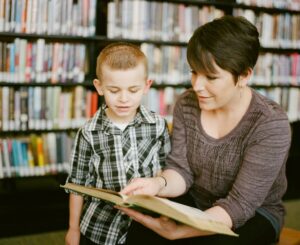 In a traditional classroom, a teacher stands at the front, delivering lessons to a group of students. At SelfDesign, a learning consultant connects with individual learners, suggests resources and guides the learner and parents/guardians as they co-develop the learning journey. Every interaction between learner and educator is an opportunity for the educator to personalize learning for the individual learner.
In a traditional classroom, a teacher stands at the front, delivering lessons to a group of students. At SelfDesign, a learning consultant connects with individual learners, suggests resources and guides the learner and parents/guardians as they co-develop the learning journey. Every interaction between learner and educator is an opportunity for the educator to personalize learning for the individual learner.
Benefits of working with a learning consultant
The SelfDesign approach means that educators and parents/guardians play an equally important (and different) role while the child undertakes daily learning in whatever way inspires them. Having a parent or guardian be the primary facilitator and observer of the learning path while the educator guides and mentors offers a lot of benefits and flexibility for everyone.
Interested in learning more about educators at SelfDesign? Learn more about the role of a SelfDesign learning consultant here.

